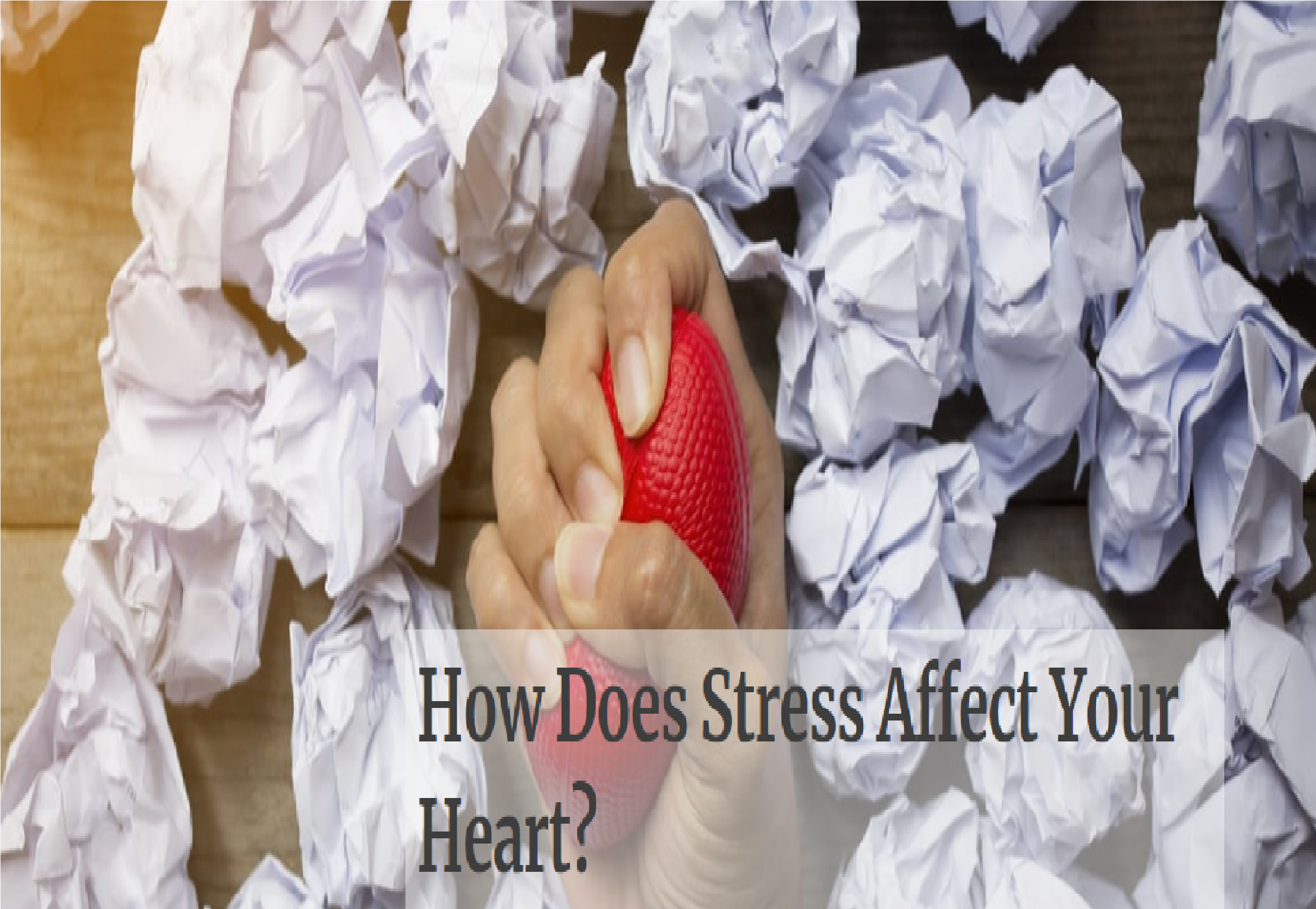- Your cart is empty
- Continue Shopping
How Does Stress Affect Your Heart?

4.OCT.2017
6 MIN READ
There is evidence to show that stress is a risk factor for heart disease, but this may be reduced by changing your coping mechanisms.
It is perfectly normal for people to respond differently to the same events and situations. One may find an event extremely enjoyable but another may find the same event terribly frustrating.
What causes stress?
Stress can be caused by a physical or emotional change, or a change in your environment that requires you to adjust and respond.
The things that make you feel stressed can be minor hassles, major lifestyle changes, or a combination of both. Being able to identify stressors in your life and releasing the tension they cause are the keys to managing stress.
Some commonly cited stressors include work overload, starting a new job, unemployment, financial concerns, relationship problems, death of a loved one or pregnancy.
Stress and your heart
Unhealthy coping mechanisms
One of the ways stress may affect the heart is by affecting behaviours that increase the risk to the heart. These include overeating that elevates high blood pressure and cholesterol levels, smoking and physical inactivity.
People often turn to comfort foods – like fast food and desserts – when they’re anxious or under pressure. These high-fat, high-cholesterol foods may lead to high blood pressure and diabetes that contribute to the artery damage that causes heart attack and stroke.
Similarly, some people turn to alcohol or cigarettes. These habits can increase blood pressure and damage the lining of the heart arteries.
The body’s reactions to stress
Behaviours aside, individuals already dealing with depression may have a hard time dealing with stress, or perhaps stress may be the cause of the depression. Depression is known to be linked to heart disease. It may result in chronically high levels of the hormones cortisol and adrenaline, which may have harmful effects on the heart.
Broken heart syndrome is a heart disease which can look very much like a heart attack – its symptoms include chest pain and shortness of breath.
This condition is believed to be due to extremely high levels of the stress hormone adrenaline. The term ‘broken heart syndrome’ was coined because researchers found that it was usually triggered by an intense emotional event, such as receiving news of an unexpected death of a loved one.
More recently, scientists have found that people who have heightened activity in a part of the brain linked to stress – the amygdala – are more likely to develop heart disease. The amygdala is responsible for telling the bone marrow to temporarily produce more white blood cells which fight infection and repair damage.
However, chronic stress can lead to an overproduction of white blood cells, which can result in plaque formation in the arteries and lead to heart disease.
Managing stress
If you’re often stressed and don’t yet have a good way to manage it, try these simple tips.
-
Laugh often. Laughter has been found to lower levels of stress hormones, reduce inflammation in the arteries, and increase good HDL cholesterol.
-
Work out. When you engage in physical activity, your body releases the hormone endorphine, also known as the mood-boosting chemical. Besides lifting your mood, exercise also protects against heart disease by lowering your blood pressure, strengthening your heart muscle and helping you maintain a healthy weight.
-
Be assertive – don’t overexert yourself. Perhaps you’re overwhelmed at work yet constantly feel the need to meet expectations or demands. Listen to your body, and know that is okay to say no to requests that will add more stress to your life.
-
Get enough rest. Be it physical stress from working out or events that stress your mental health, both your body and mind require time to recover. Even with a healthy diet and exercise, your body can’t fight stress without rest.
-
Quit smoking. Aside from the well-known health risks of smoking (particularly on your heart), the nicotine in cigarettes can actually bring on more stress symptoms.
-
Meditate. This practice of quiet solitude and deep breathing has been shown to reduce heart disease risk factors such as high blood pressure.
Besides managing stress, go for a heart screening to identify any hidden risk factors or heart problems you may have, so you can take better control of your heart health.
Article reviewed by Dr Ong Hean Yee, cardiologist at Mount Elizabeth Novena Hospital
Resources
Knapton, S. (2017, January 11). Scientists finally discover how stress causes heart attacks and strokes . Retrieved from http://www.telegraph.co.uk/science/2017/01/11/scientists-finally-discover-stress-causes-heart-attacks-strokes/
Heart Disease and Stress: What’s the Link? (n.d.). Retrieved from http://www.webmd.com/heart-disease/guide/stress-heart-disease-risk
Stress and Heart Disease: Get Facts on the Warning Signs. (n.d.). Retrieved from http://www.medicinenet.com/stress_and_heart_disease/article.htm
Stress and Heart Health. (2017, April 20). Retrieved from http://www.heart.org/HEARTORG/HealthyLiving/StressManagement/HowDoesStressAffectYou/Stress-and-Heart-Health_UCM_437370_Article.jsp#.Wc4tgxOCzBI
Stress and your heart. (2013, December). Retrieved from https://www.health.harvard.edu/heart-health/stress-and-your-heart
Stress. (n.d.). Retrieved from https://www.bhf.org.uk/heart-health/preventing-heart-disease/stress
Stress & Heart Disease. (n.d.). Retrieved from https://my.clevelandclinic.org/health/articles/stress-management-heart-health
Source: https://www.mountelizabeth.com.sg/healthplus/article/how-does-stress-affect-your-heart?utm_source=acoustic&utm_medium=email&utm_campaign=quarterly&utm_content=&spMailingID=5010896&spUserID=MjgyMjQxNTIxMDMwS0&spJobID=1561298391&spReportId=MTU2MTI5ODM5MgS2


